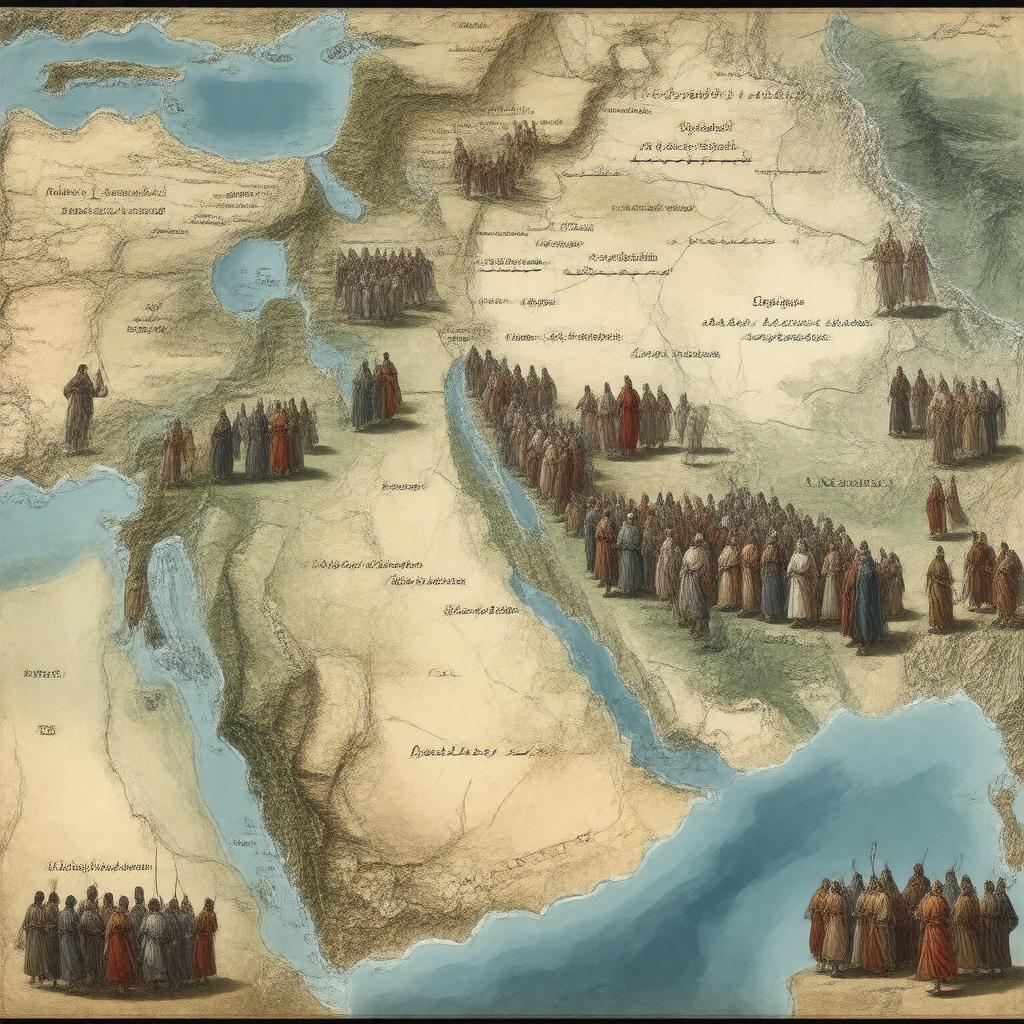Prompt
"Generate an image of a map of the Middle East and surrounding regions, highlighting areas where Neo-Aramaic languages are spoken, with subtle inclusions of various scripts such as Syriac, Hebrew, Latin, and Arabic, and a faded background image of a diverse group of people from different ethnicities and religions, representing the Assyrian, Chaldean, Mandaean, Jewish, and Syriac Christian communities, with a sense of cultural richness and linguistic diversity, conveying the complexity and endangered status of the Neo-Aramaic language family."

